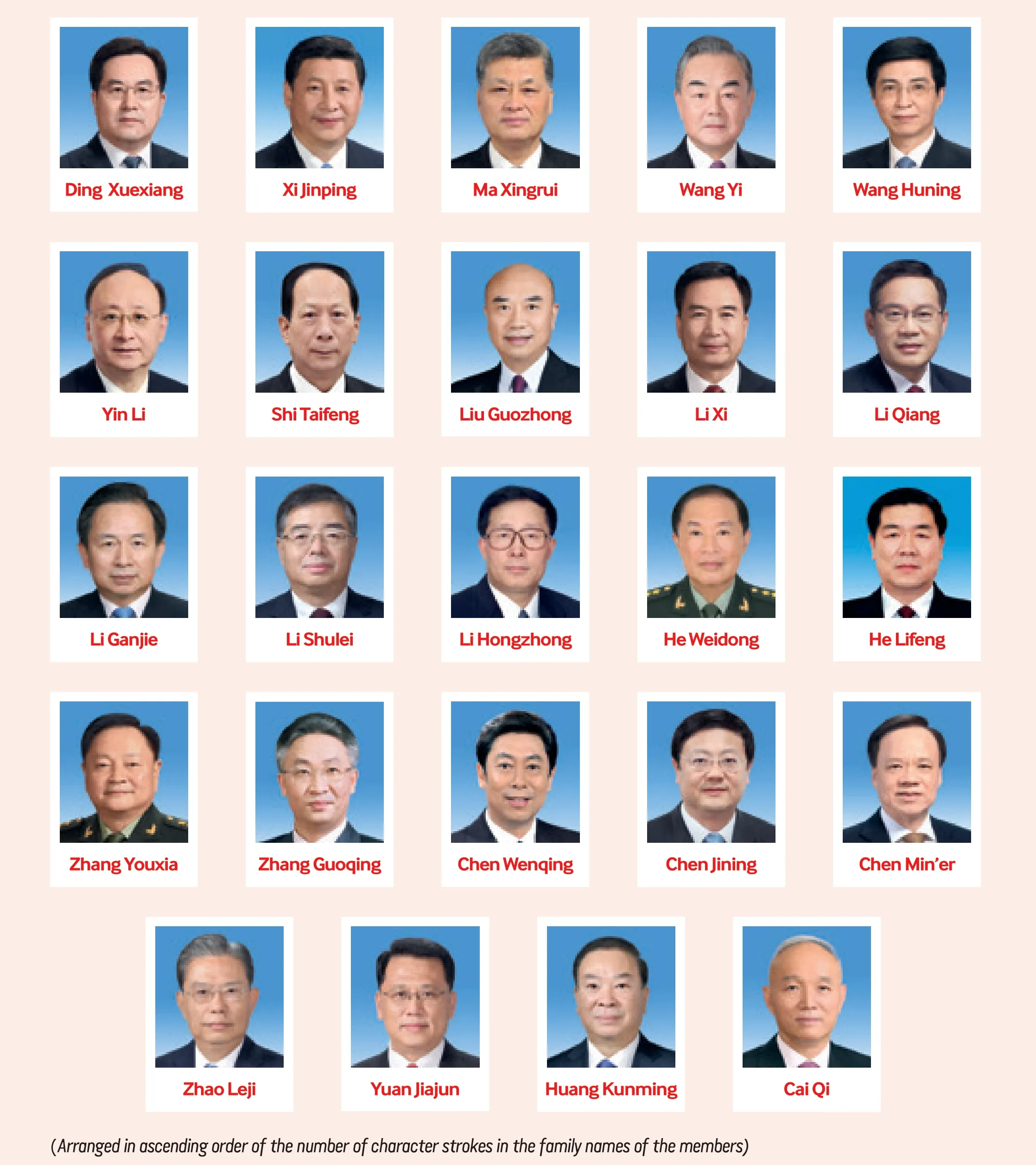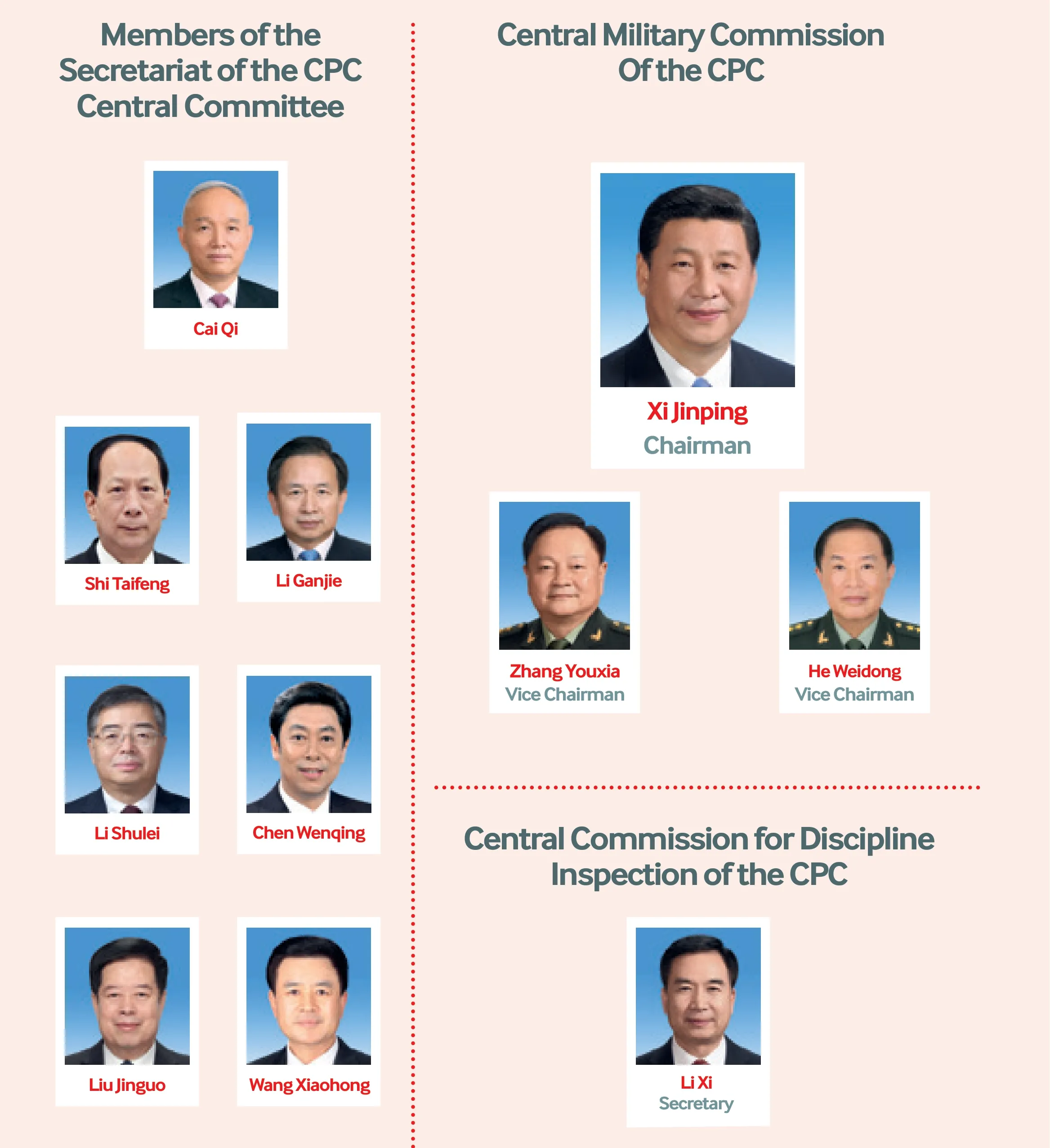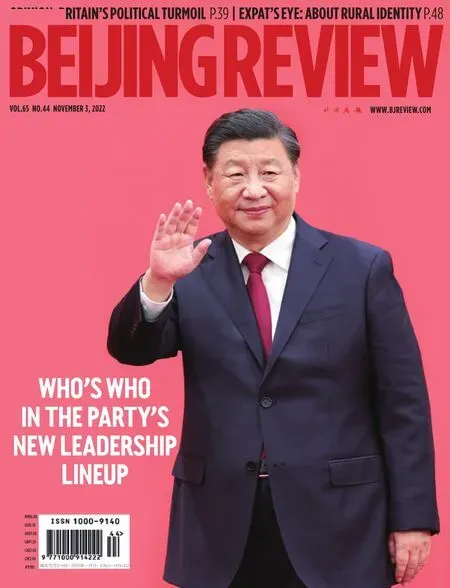SAFE HANDS
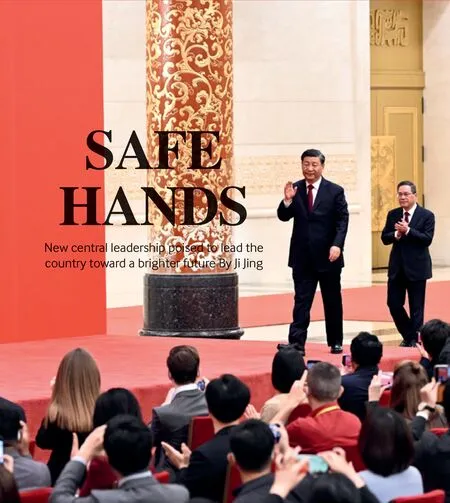
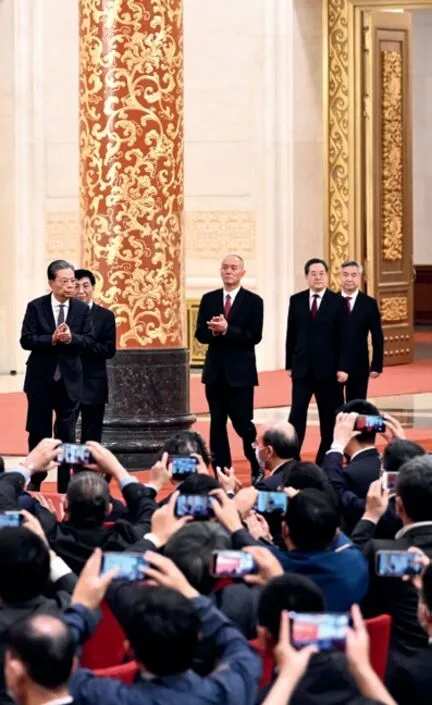
Xi Jinping, General Secretary of the Communist Party of China (CPC) Central Committee, and the other newly elected members of the Standing Committee of the Political Bureau of the 20th CPC Central Committee, Li Qiang,Zhao Leji, Wang Huning,Cai Qi, Ding Xuexiang and Li Xi, arrive to meet the press at the Great Hall of the People in Beijing on October 23
For the third time in his career, Xi Jinping led othernewly elected Party leaders to make their debut in Beijing on October 23.
“We shall keep in mind the Party’s nature and purpose and our own mission and responsibility, and work diligently in the performance of our duty, to prove worthy of the great trust of the Party and our people,” he said.
Since he was first elected general secretary of the Communist Party of China (CPC) Central Committee in 2012, Xi has led the world’s most populous nation in achieving history-making progress. Hopes are high that the new leadership team will continue to steadily steer China down its path to modernization.
Guiding principles
Ten years ago, when Xi ascended to the Party’s top post, China was already the world’s second largest economy and top manufacturer.But the economy faced increasing downward pressure and the need to transform the economic structure became pressing. Other tough issues also needed to be resolved,such as corruption, pollution and a wide wealth gap.
Xi has put forward a new development philosophy that promotes innovative, coordinated,green, open and inclusive development for all.
“We will boost the dynamism and reliability of the domestic economy while engaging at a higher level in the global economy,” a report Xi delivered to the 20th CPC National Congress on October 16 said. “We will...make China’s industrial and supply chains more resilient and secure, and promote integrated urban-rural development and coordinated regional development,so as to effectively upgrade and appropriately expand China’s economic output.”
The report underscores the need for high-quality development in aspects including the economy, society, culture and ecology, Mu Hong, deputy head of the National Development and Reform Commission, said at a press conference on October 24.
Xi has come up with new ideas on many national and global issues and his philosophy is considered a new breakthrough in the adaptation of Marxism to the Chinese context and the needs of the times.
Xi has an objective and comprehensive understanding of China’s current situation, as well as detailed and rational thinking on its future, a Xinhua News Agency profile of Xi quoted Robert Kuhn,an American scholar who authored the bookHow China’s Leaders Think
, as saying.Poverty alleviation, the Belt and Road Initiative and the environmental cleanup all have their place within Xi’s thought and all are practical at the grassroots level where ideas become action,driving the historic changes over the past decade, David Ferguson,a British editor who edited the English translation ofXi Jinping:The Governance of China
, said.Xi Jinping Thought on Socialism with Chinese Characteristics for a New Era, guiding principles developed since Xi assumed the Party’s top job in 2012, was enshrined in the preambles of both the Party and national constitutions in 2017 and 2018, respectively. The thought also includes ideas such as a Chinese path to modernization, the rule of law and improved Party self-governance.
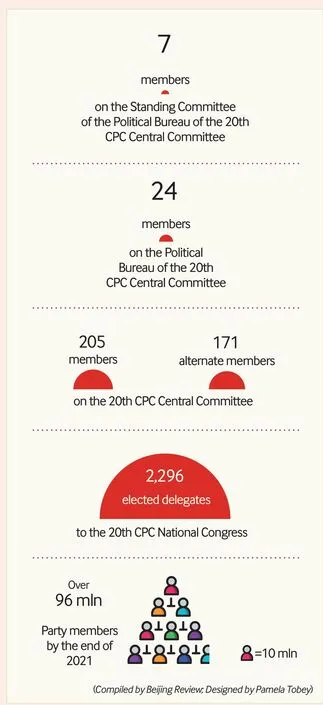
In international relations, Xi champions a community with a shared future for humanity, one in which people will be able to cope with pandemics,climate change, food and water insecurity, and war by emphasizing mutually beneficial solutions.The Belt and Road Initiative is a plan that aims to enhance connectivity along and beyond the ancient Silk Road routes proposed by Xi in 2013.
A resolution adopted at the 20th CPC National Congress said the establishment of Xi’s core position and the guiding role of his thought has enabled the Party to successfully resolve acute problems and challenges.
It was agreed at the congress the new developments in Xi Jinping Thought on Socialism with Chinese Characteristics for a New Era since the Party’s 19th National Congress in 2017 should be incorporated into the Party Constitution, another resolution on Party Constitution amendment said.
Broad consensus
On October 22, the new CPC Central Committee which has 205 members was elected during the closing session of the five-yearly national congress.
According to the Party Constitution, the highest leading bodies of the Party are the National Congress and the Central Committee which it elects. Between plenary sessions of the Central Committee, the Political Bureau and its Standing Committee shall exercise the functions and powers of the Central Committee.
At the October 23 plenum, the 24 members of the CPC Central Committee Political Bureau were elected; of these, seven were elected to the Standing Committee of the Political Bureau, the top leadership, which includes the general secretary.
The plenum endorsed the members of the CPC Central Committee Secretariat and named the members of the CPC Central Military Commission.
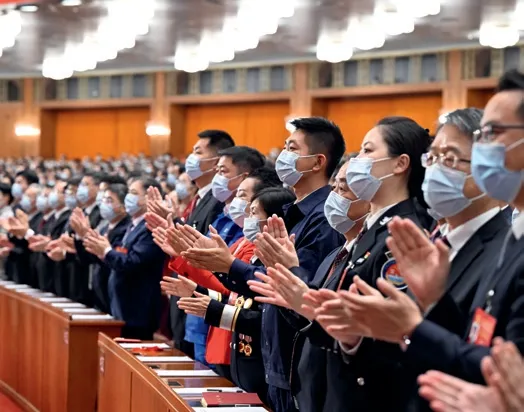
The 20th CPC National Congress concludes in Beijing on October 22
In addition, the 20th CPC National Congress elected the 133 members of the Central Commission for Discipline Inspection (CCDI),who then elected their own Standing Committee, secretary and deputy secretaries, who were then approved by the October 23 plenum.
In early 2022, Xi began seeking advice from other members of the Standing Committee of the Political Bureau on candidates for a new central leadership, according to a Xinhua News Agency report.
On March 24, a plan for the recommendation of candidates was adopted. According to the plan, candidates should be dedicated, impartial and upright, and emphasis should be placed on merit regardless of background, and on having both integrity and ability, with greater weight given to the former.
One-on-one talks played a major role in the process. Starting from April, Xi talked to 30 senior leaders to seek their opinions. From April to July, other senior CPC leaders also sought advice from 318 senior officials and military officers.
Consultations continued until late September when the proposal on the makeup of the new central authority was adopted. It was then submitted to the first plenary sessions of the 20th CPC Central Committee and the 20th CCDI.
There are also strict procedures for the nomination and election of the CPC Central Committee and the CCDI members. Of the 222 that had been nominated as CPC Central Committee member candidates,205 were elected.
The world is watching how the new leadership body will steer China through tough challenges and chart a fresh course toward national rejuvenation. BR
Copyedited by G.P. Wilson
Comments to jijing@cicgamericas.com
General Secretary Of the CPC Central Committee
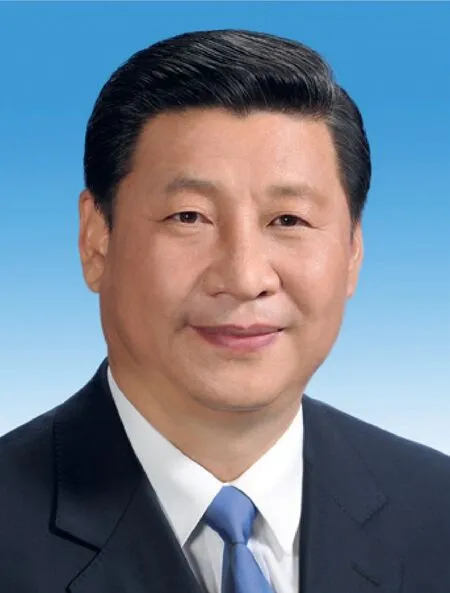
Xi Jinping
Members of the Standing Committee Of the Political Bureau of the CPC Central Committee
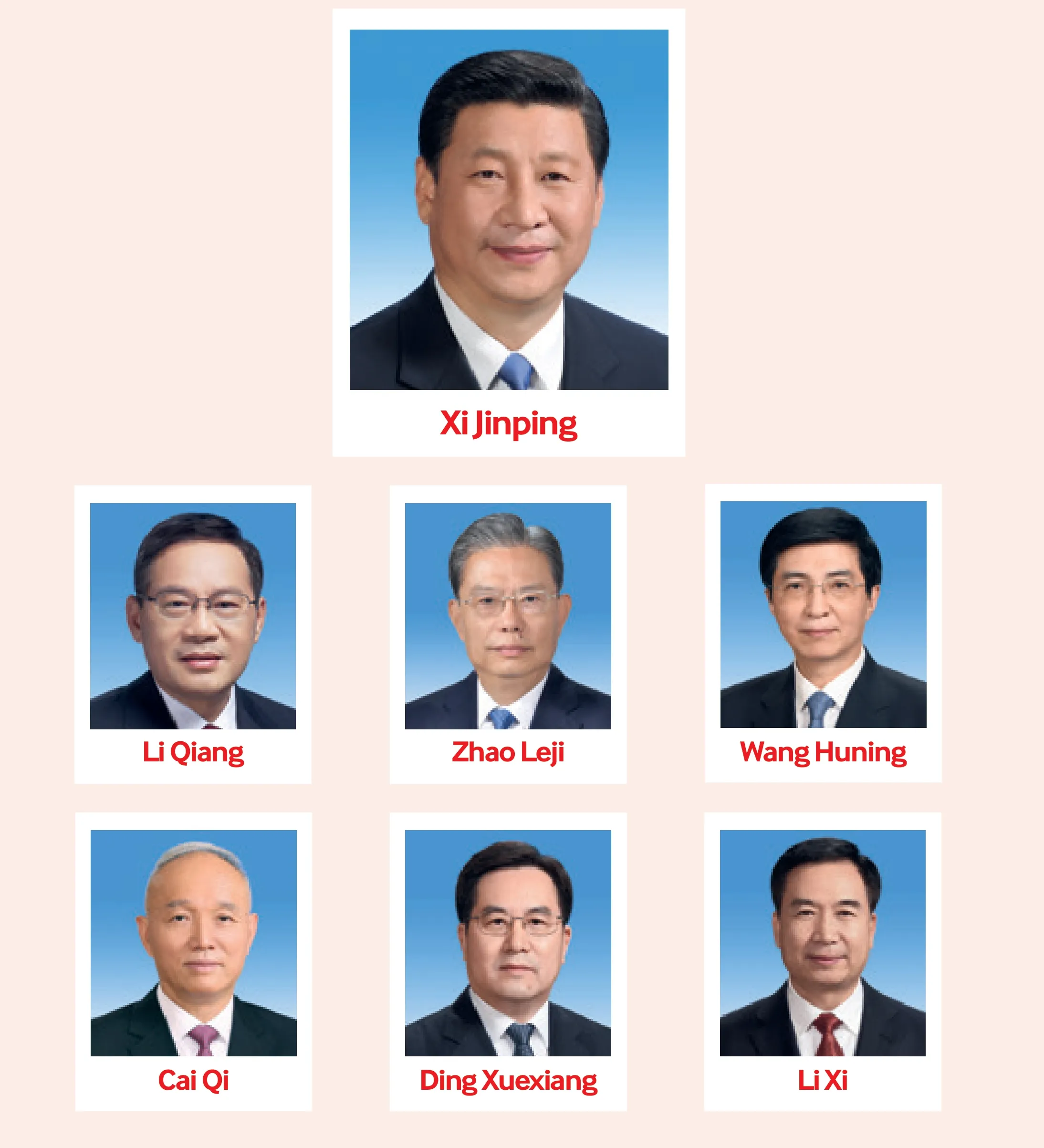
Members of the Political Bureau of the CPC Central Committee
